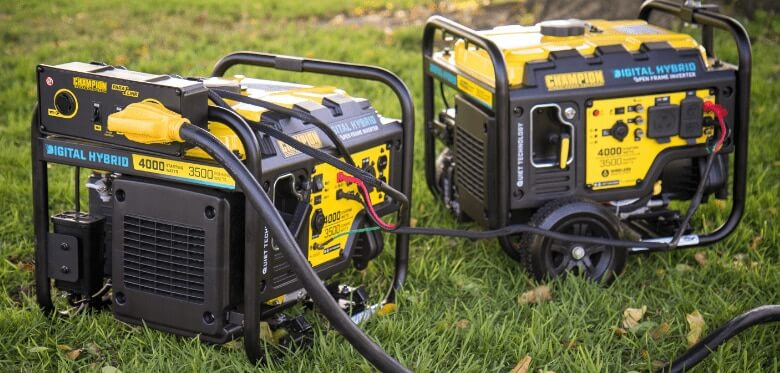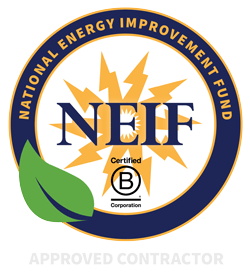Generators 101: Everything You Need To Know Before You Buy
- Generators

Keeping your home going during an extended power outage can be a real pain, but what about if you have a business? Your customers and your family rely on your ability to serve their needs: for heat, cooking and for computing power. If you’re in an area that is either rural or prone to regular power outages, having a standalone power generator on hand can help you keep things moving — and can even be lifesaving in certain parts of the country during cold winters or hot summers. Power outages are a nuisance at best, and having a reliable source of backup power is even more critical with today’s reliance on the grid.
Types of Power Generators
While there are technically more than four types of power generators, the most commonly used and available ones are natural gas, diesel, propane and gasoline. Some generators are portable while others require a set location due to their energy needs. Some uncommon forms of generators include those powered by biofuels, combination biofuels and diesel and even some hydrogen generators. While many hope that hydrogen generators, running on the hydrogen found abundantly in water, will be the wave of the future, this technology is still in its infancy.
- Natural gas is readily available and in ample supply throughout the country, making it a premiere choice for power generation. Generators run directly on fuel that comes through available gas lines so they are lower maintenance and don’t require constant refueling as other types of generators do. However, these generators are not portable and can have a higher installation cost due to the need to run hard lines directly to the unit. Natural gas is a relatively clean form of energy that starts and runs well in all kinds of weather. Power generators that run on natural gas may not last as long as the sturdy diesel units, and damage to a gas line will cause immediate disruption of service. Additionally, there is always the concern of a natural gas leak — which can be very dangerous.
- Diesel generators are the workhorse of the generator world. Diesel is a near-ideal option for short-term, alternative power generation as it is not very flammable, has wide availability and the engines that drive these generators are sturdy and efficient. While they do tend to cost slightly more than gas alternatives, diesel generators are relatively cost-effective to purchase and they start quite easily when you need them on cold winter mornings. Some cons to a diesel generator are the inability to store diesel fuel for longer than 24 months, and an inability to pump the fuel where needed without power. There are also significant emissions with a diesel-powered generator, which leads to additional environmental concerns.
- Propane gas generators burn cleanly, can be stored in high quantities and have high availability even during a power outage. The overall emissions from a propane gas generator is low, they are affordable and long-lasting. They also tend to be quieter than diesel engines, with many of the benefits of natural gas generators. However, propane is quite explosive and must be stored under pressure — while the complex delivery systems required for propane have a propensity to break. Propane gas generators tend to run through up to three times the amount of fuel needed for other generators and the systems are unlikely to have the durability and lasting power of a diesel option.
- Gasoline generators are the most common option, due to their all-around positive attributes. Gasoline is easily available, though it does require power for pumping, and since they are so common these generators are amongst the cheapest. Gasoline generators are often used for homes or other small applications where generators bridge a short-term gap between power outages. Gasoline is priced higher than diesel or propane options and the generators are not as reliable in colder temperatures.
Power Generator Dangers
While power generators are an acceptable way to get you through a power outage, it’s important to note that they’re not without their hazards. Everything from carbon monoxide poisoning to electric shock are possible with these large power-generating devices. Using a power generator in enclosed spaces is rarely a good idea, and they are often located outdoors and slightly away from buildings for just that reason. Unfortunately, carbon monoxide is invisible and impossible to smell so you may not realize there’s a problem until it is too late. Since generators are creating electricity, all the standard electrical hazards also apply: water, wiring concerns and even fire hazards.
Life Expectancy and Maintenance
Since generators are meant to be run only sporadically, their lifespan is significant. Some generators have a life expectancy of up to 30 years, based on around 3,000 hours of lifetime use. However, that figure varies widely by the type of generator and whether or not they are receiving the appropriate maintenance and are placed in an optimal location. Keeping your generator humming along when you need it may be as simple as keeping oil and filters on hand for an extended outage. Diesel and gas generators may need to have an oil change every 50-60 hours, and if you’re out of power for a week or longer this time can add up quickly. Allow engines to cool before you add additional fuel, and be sure you always keep the tanks filled up for generators that are not attached to a hardline fuel source. Allowing an engine to run completely dry can damage the overall system in a very expensive way.
Selecting the right generator for your needs should be a balance based on several factors including geographic location, expected load, usage levels and budgetary requirements — both ongoing and upfront. Safety should always be a priority as well. Depending on your needs, you may select a portable generator that generally requires active intervention or a standby generator that starts automatically upon power outages. Standby generators are generally natural gas or propane powered and may be ideal for businesses or families with strict health care needs, small children or the elderly.
For More Information on Generators of All Shapes and Sizes, Call NSHEC Today!
Contact North Shore Home Energy Today!
Check Out Our Current Specials!
Read The Great Things That Your Neighbors Are Saying About NSHEC.





